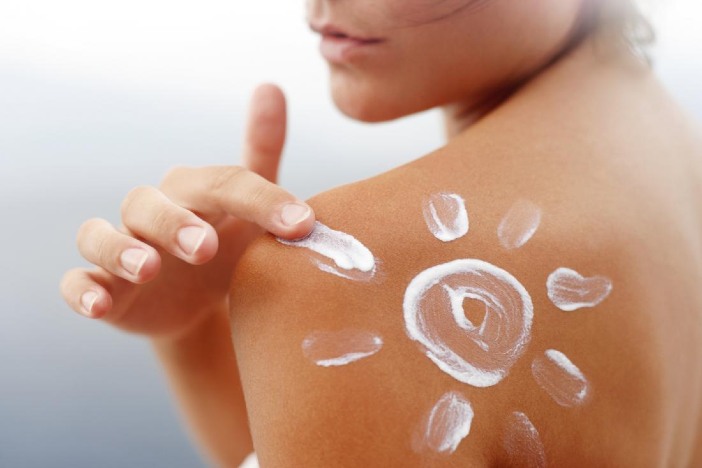Summertime is fun days to enjoy in the sun, lounge by the beach or a pool, get tanned, and let the heat be absorbed into your skin. However, you can’t do all these without being protected by sunscreen.
Soaking up the warm UVB rays from the sun helps in the production of Vitamin D in our body. But the sun is also known to be dangerous if you are under it for too long. The need to protect yourself becomes an important routine as you continue your activities under the sun.
This is why you need sunscreen to protect yourself. It is effective and forms a barrier over your skin from harsh ultraviolet (UV) rays of the sun. Also, you protect your skin from radiation, letting it glow with the right exposure.
Shopping Guide
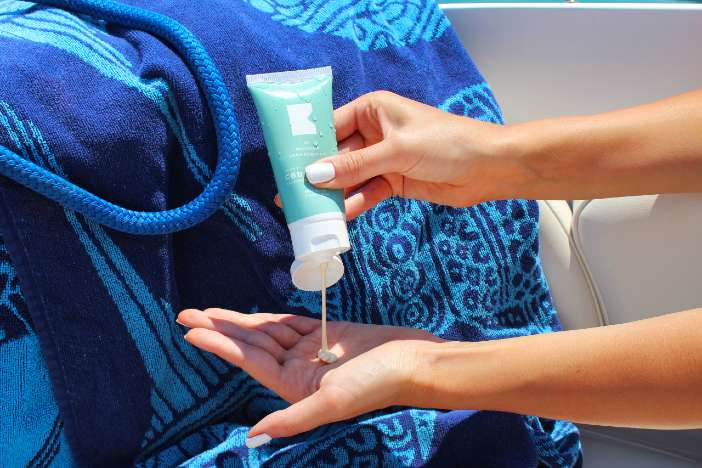
This section is about identifying what sunscreen is and why you need it in your everyday outdoor activity. It’s a product that needs more exposure in the market because it is essential and should be part of our daily skincare routine.
You have to be informed of all there is to know about the product to buy the best one for your skin type. I will be answering the frequently asked questions regarding buying sunscreen.
What exactly is a sunscreen?
Sunscreens are skincare products used to protect the skin from harmful radiation from the sun. They are usually applied topically and can prevent damages like sunburn, dry or leathery skin, wrinkles, and sunspots. Also, they are effective tools used in reducing the risk of skin cancer or skin reactions.
They have active ingredients that work as an absorbing film. The film protecting the skin absorbs or reflects the UV radiation the sun emits. This prevents further skin damage from external agents.
However, this is not a free card to stay out longer in the sun. You should limit your activities under the sun as much as possible.
Sunscreens come in different forms. You can apply sunscreens on your skin as a lotion, gel, cream, stick, ointment, or spray.
Sunscreen level is measured with Sun Protection Factor (SPF). SPF measures the ability sunscreen has in protecting your skin from damages. This means, the higher the SPF of a sunscreen, the better protected you are against sun radiation.
Why is solar radiation harmful?
Solar radiation is a broad spectrum of energy called the electromagnetic radiation spectrum. The spectrum includes X-rays, ultraviolet rays, gamma rays, infrared, radio waves, and visible light.
Solar radiation can cause problems to unprotected human health. The two ultraviolet radiation emitted to the earth are UVA and UVB radiations. Both radiations have effects on the skin. However, UVA (ultraviolet A) penetrates deeper into the skin than UVB (ultraviolet B).
UVA radiation is known to cause fine lines, wrinkles, and sagging skin. UVB rays cause superficial damage on the skin, like redness or sunburn. It is also responsible for the possible development of skin cancer.
Therefore, exposure to UVA and UVB rays not only wrinkles and sags our skin, but it could also risk our skin getting skin cancer.
Why do I need a sunscreen?

Knowing that the sun rays could hasten our skin to age should be reason enough to wear sunscreen. If we protect our skin, it would always stay healthy, soft, and beautiful. Photoaging is not pleasant. And with sunscreens, your skin would be protected from the early effects of aging.
Also, there are the possible health risks of sun rays. Skin cancer, sunburns, and some skin conditions may be prevented when you use sunscreen. Sunburns can sometimes turn to sores, and it is painful. You will need the help of sunscreen to keep your skin from turning red from sunburn.
Furthermore, you can protect your skin from discoloration and dark spots. Wearing sunscreen will help you keep your skin tone and complexion. Therefore, you need sunscreen to protect your skin, help you reduce aging effects, and keep your complexion.
When should I start using sunscreen?
Experts have recommended the use of sunscreen from age 0. From when a baby is about six months of age and up to adulthood.
Skin cancer can be prevented if you use sunscreen every day from an early age. It doesn’t have to be when you go to the beach, but even when you are running an errand or meeting friends.
You should wear your sunscreen to avoid excessive exposure to the sun because you don’t know when the damage to the skin may occur. Also, you should wear sunscreen even if it is cloudy and there is no sign of the sun.
The sun’s rays can still pass through the clouds, so it shouldn’t matter to you whether the sun is up or covered. Cultivate a healthy habit when it comes to wearing sunscreens.
Besides these, you should wear your sunscreen at least 30 minutes before your sun exposure. By this time, the active ingredients of the sunscreen would have been fully absorbed into your skin.
Sunscreen weakens after two hours. Therefore, you should reapply your sunscreen on open or exposed areas of your body every two hours.
How do sunscreens work?
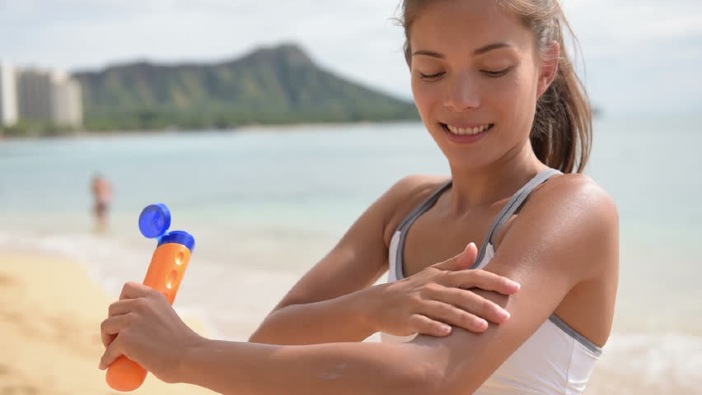
You need sunscreen to protect your skin from the sun’s solar radiation, that is, UVA and UVB rays. The product works by using chemical and physical sunscreens to absorb or reflect the UV rays.
Physical sunscreens have particles like titanium oxide and zinc oxide that reflect the UV rays, infrared and visible light off the skin. It is usually thick and leaves stains, but it has a lower risk of allergic reactions.
While the chemical sunscreens absorb UV rays before it gets through the skin. Chemical sunscreens absorb only UV rays and release them as heat from the body.
However, unlike physical, it has a higher risk of allergic reactions. But chemical sunscreens are lighter and transparent in composition, so they do not leave stains.
The mechanization of the sunscreen may be one of these two or both combined. However, physical sunscreen has a wider spectrum of protection than chemical sunscreen.
You need a combination of these two to help the skin stay completely protected. Not only UV rays damage the skin, therefore many people opt for physical sunscreens.
However, UV rays are said to cause skin effects if they penetrate the skin. This is why you need to use chemical sunscreen. Therefore, buy a sunscreen that protects from UV rays and other solar radiation to completely fortify your skin.
Does a sunscreen last long?
It depends on many factors. How long your sunscreen lasts depends on factors like SPF.
For instance, the SPF in a product might be low and you’ll find your skin reddening in less than 30 minutes. This is because the higher the SPF, the more you stay protected for a long time.
It is recommended that the least SPF a sunscreen must have is SPF 30. It would take a while before you feel the sun’s effects when you use SPF 30 and above.
Also, your skin type plays an important part. There are skin types that are more susceptible to radiation than others. Then you have time you are out in the sun and the season. Also, your activities with water like swimming or surfing will affect how long your sunscreen lasts.
You should increase your sun protection if you are going to be exposed for much longer in the sun. Whether you are out in the sun all day, in the water, or under cloudy weather, you should apply your sunscreen.
Also, you have to increase your SPF if you fall under these categories:
- You are a sensitive skin under the sun
- Toddlers or babies
- Taking medications that makes you more susceptible to the sun
- Swimming or surfing
- Summer season
- If you leave close to the equator
What are the types of sunscreen available?
Sunscreens don’t fall under one type of classification. There are different types of sunscreen.
For instance, we have physical and chemical sunscreens based on how they work. Then there are biological filters, which mixes antioxidants with substances of natural origin. This type is based on how sunscreen protects our skins.
Then we have waterproof sunscreen and water-resistant sunscreens. These two types are different in many ways. Waterproof maintains protection for about 80 minutes underwater, while water-resistant can protect for about 40 minutes underwater.
Then sunscreen can be classified based on its environmental impact. Is it biodegradable or not. Some sunscreens do not contain chemicals that could harm the environment. These biodegradable types can be used for marine activities.
Then you have sunscreens based on forms. Sunscreens can come in liquid, cream, spray, gel, stick, lotion, oil, or ointment forms. These forms also differ in composition. For instance, lotions are light, while creams are thicker and greasier when applied.
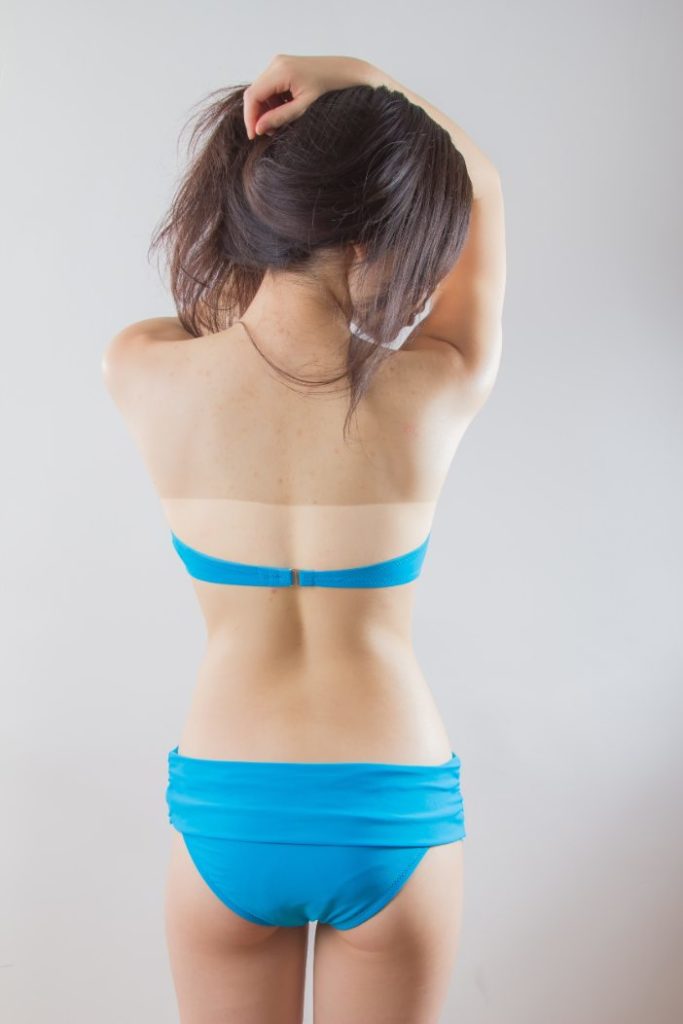
How should I apply my sunscreen?
You can follow these simple tips in applying sunscreen correctly.
- Apply at least 30 minutes before sun exposure.
- Apply on dry skin.
- For each centimeter square of the skin, apply 2 milligrams of sunscreen. That means be generous when you apply it to your skin.
- Spread evenly across your body.
- Apply with caution on sensitive areas like the face, neck, shoulders, and feet. They are the most exposed parts of the body.
- Apply sunscreen every two hours or when you come out of water.
Does sunscreen have side effects?
Yes, it does. Sunscreen is a must for your daily skincare routine. However, it has few drawbacks that could affect your skin.
For instance, the chemical components in sunscreens could cause a rash on irritated skin. If you experience such a reaction, wash the sunscreen off immediately.
Then there are allergens in sunscreen. Though this is rare, you could experience allergic reactions due to the ingredients in sunscreen. Read the full label to identify ingredients that don’t fit your skin.
Are there myths about sunscreen?
There are myths and opinions about sunscreens you might hear from people. Some sound so convincing you might actually fall for it. However, these statements are false, and they in no way represent what sunscreens really are for.
Here are some myths that should be debunked about sunscreens.
- Dark and colored skin tones don’t need sunscreens. This is false. All skin tones need to protect their skin from UV rays.
- I won’t get brown if I use sunscreen. This is false. Sunscreens do not hinder you from tanning. Tanning is caused by the oxidation and formation of melanin. The process is entirely different.
- I don’t need sunscreen on cloudy days. This is false. You need to wear sunscreen every day. As highlighted earlier, sun rays peep out through the clouds.
- I don’t need sunscreen if I am only outside for a little while. This is also false. You need sunscreen all the time. You don’t know when the UV rays might penetrate your skin, causing damage. Therefore you need to stay protected.
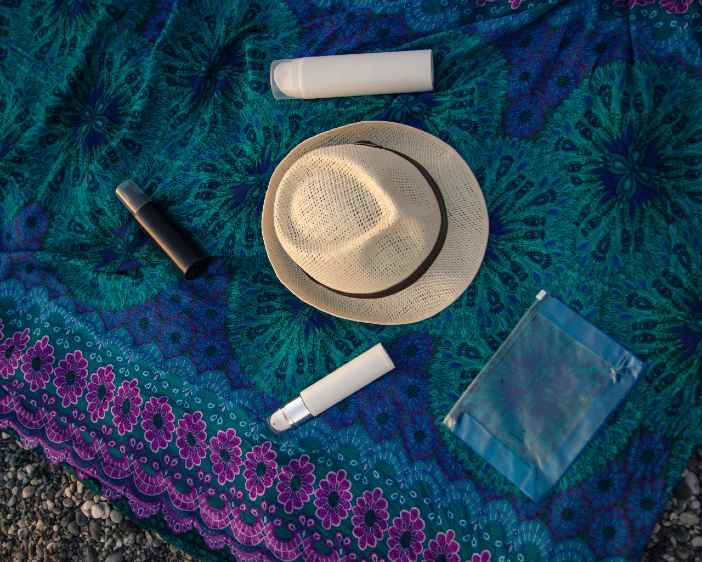
What are the pros and cons of using sunscreen?
As good as sunscreens are, there are advantages and disadvantages of using the product. It is just like any other skincare product that would help the skin stay healthy, but you should be aware of its drawbacks. Then you would be able to counter it. The following are the pros and cons of sunscreens.
Pros of Sunscreen
- Protects the skin from photoaging.
- It prevents sunburn.
- It is easy to apply.
- Sunscreen reduces the risk of skin cancer.
- Prevents dark spots and blemishes.
Cons of Sunscreen
- Leaves whitish layer that could grease or stain.
- Not 100% protection.
- Skin irritation may occur.
Shopping Criteria
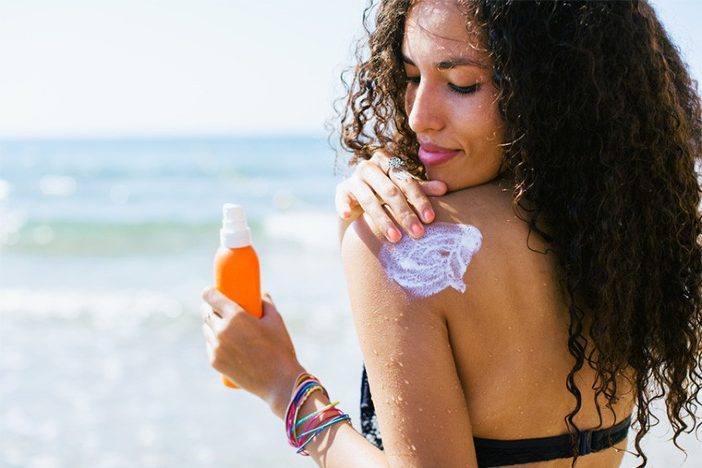
Before buying your sunscreen, you have to screen your choice of purchase based on some criteria. These criteria will influence your buying choice. They are influencing factors that you must check off your list before buying a particular product.
For sunscreen, the following criteria must be met.
Skin Type
Skin type plays an important role when it comes to buying sunscreen. You need to have an idea of how susceptible to solar radiation you are. This is your phototype. You can use Fitzpatrick skin typing to determine your skin phototype.
If you rank low on the scale, you would need more protection than others. For instance, the lighter your skin, the more you need to be protected.
Skin type also has to do with whether you are dry, oily, sensitive, neutral, or combination skin. Dry skin would need heavier creams to moisturize its body. On the other hand, oily skins need light formulas like lotions or sprays.
Age
From six months above, you need to protect children with sunscreen. They need a higher SPF protection level than adults. This is because their skins are still maturing and sensitive.
Also, children will need waterproof or water-resistant sunscreens when they go into the water. Adults’ skins are more resistant, and the body can form a natural defense than children.
Sunscreen Type
There are various types of sunscreen for different types of skins. Where you live also determines what type of sunscreen you use. Therefore, you have to choose the sunscreen type that would provide maximum protection.
For example, if you have a very active lifestyle, chemical sunscreens are very practical in use. The same goes for people who have major activates with water. Waterproof or water-resistant sunscreen is perfect.
A long day on the beach would need something heavy like physical sunscreen. It is also best with sensitive skins. And if you care about the environment, you can use biodegradable sunscreens to protect the environment.
Degree of SPF
SPF determines the degree of protection you need. Your phototype would determine if you need more protection or not. For instance, people with low phototype would need a higher SPF level. Also, your SPF level should be increased on days in the water or summer days.
Central hours, like noon, are high with the sun’s UV rays. Therefore you should protect yourself when outside during those times. Places with high altitudes require more sun protection. That is, the closer you are to the equator, the more sun protection you need.
Composition
To avoid irritating your skin with components in sunscreen, you should read the ingredient list. Also, some have chemicals that could be harmful to the environment. You have to choose your sunscreen after reviewing the composition.
Recommended Sunscreens
Sunscreens are essential daily skincare products. You have to have them with you at all times. But buying might be confusing for you. Therefore, a list of sunscreens that offer the best protection has been made. Analyze the products and decide what you want in your sunscreen.
Best Water Resistant Sunscreen
Neutrogena Ultra Sheer Dry-Touch Water Resistant Sunscreen Lotion is one of the best in the market right now. The protective lotion has an SPF of 100+ to protect your skin from damages and decrease the risk of skin cancer.
It is non-greasy and lightweight. Also, the lotion is fast-absorbing and non-comedogenic. It would not clog your skin pores.
You are to use the product as directed to get maximum protection at all times. Enjoy supreme quality matte finish and a formulation with Helioplex for superior sun protection.
Best Facial Sunscreen for Sensitive Skins
This sunscreen by EltaMD is dermatologist-approved and great for sensitive or acne-prone skin. The formula is oil-free and mineral-based. It helps to calm and soothe sensitive skin types and also prevents discoloration and rosacea.
The sunscreen is broad spectrum with ingredients like zinc oxide to protect against UVA and UVB rays. You are to reapply every 2 hours at least to keep your skin protected.
Best Organic Sunscreen
Sum Bum’s Original SPF 50 Sunscreen lotion is vegan and environmentally friendly. The broad spectrum moisturizing sunscreen is free of chemicals like gluten, octinoxate, oxybenzone, and paraben. Instead, it is packed with vitamin E to protect the skin and keep it moisturized.
The lotion is oil-free and water-resistant. You can wear it when you are at the beach or lounging by the poolside. The lotion should be reapplied every 80 minutes for continuous skin protection. The lotion is hypoallergenic and does not irritate the skin. Also, it is cruelty-free.
Best Sunscreen Spray
This value-pack sunscreen by Copperstone is meant for high-performance and extreme activities. It has sun protection of SPF 50 to keep you protected as you carry on with your outdoor activity. The continuous spray is breathable and lightweight.
You can carry it with you to job sites, when you go for a hike, or sports activities. It is water-resistant for about 80 minutes, then you need to reapply.
Best Intensive Sunscreen
With sun protection of SPF 50, Banana Boat Ultra Sport Reef Friendly Sunscreen Lotion is great for intense activities in the sun. It works well with all skin types and is a broad spectrum.
You can wear the high-performing lotion in the pool water, ocean water, seawater, sun, heat, sand, and when you sweat.
The formula is lightweight. It doesn’t weigh down on your body. Have a fun-filled outdoor activity without the worry of sunburn or any other skin damage.
Summary
A day without sunscreen could spell trouble for you. You would be exposing your skin to photoaging, and there is a risk of developing skin cancer. Sunscreens are there to protect your skin from such damages.
Sunscreens need to have enough Sun Protection Factor (SPF) to provide adequate safety for your skin. The recommended sun protection you would need a day is SPF 30. And don’t be too convinced of the myths you hear about sunscreens. You need the skincare product all the time, even on cloudy days.
You can think about sunscreen as a protective cover that would keep your skin protected and healthy for a very long time. This is why you should always have one tucked in your bag wherever you go.
MBGON provides wellness articles to help improve your daily lifestyle.
